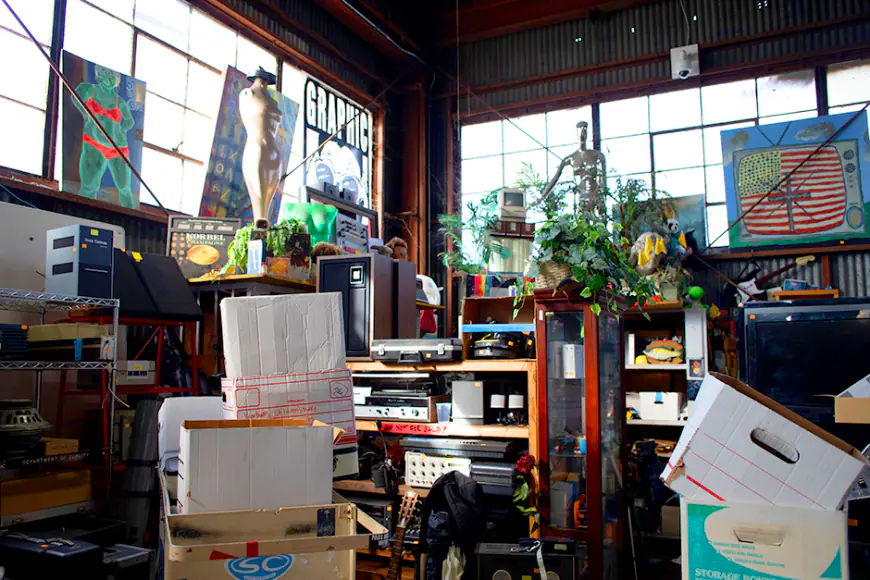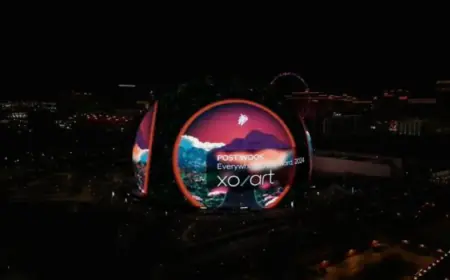Could resource recovery parks help Hennepin County get to zero waste?
One model worth studying is in California, where a 35,000-square-foot warehouse in Berkeley is home to Urban Ore. The post Could resource recovery parks help Hennepin County get to zero waste? appeared first on MinnPost.


Imagine a place where you can offer your unwanted materials to others and, at the same time and location, take items discarded by others.
Sure, there’s Craigslist and Facebook Marketplace and Buy Nothing groups. But not everyone wants to spend time online — particularly on a Meta platform, where Facebook Marketplace and Buy Nothing groups are commonly housed, as Meta eliminates fact checkers and changes their speech policies. And though thrift and antique stores may be options, they might not have everything you need, they might not take everything you have and you might not necessarily have the time to hop from store to store for one reason or another.
To combat waste, activists — including those involved with advocating for the closure of the downtown Minneapolis incinerator — are calling for locations where people can dispose, reuse, recycle and compost their collective waste. They are calling those places “resource recovery parks.”
What’s a resource recovery park?
According to a 2000 report to the California Integrated Waste Management Board written by Gary Liss, a California-based zero waste consultant, resource recovery parks could locate “reuse, recycling, compost processing, manufacturing, and retail” operations in one facility. Similar to thrift stores, they allow people who wish to discard an item to do so, as well as for others to buy discarded items. In an email, Liss added that there are no minimum requirements a resource recovery park has to meet to be considered a resource recovery park.
One example in California is Urban Ore. The park operates on a 3.5-acre-lot with a 35,000 square-foot warehouse in southwestern Berkeley accessible by public transit and a bikeway. Since 1980, the park has accepted items for resale, including medical devices, doors, bathtubs, sound equipment, books, bike parts, clothing and laptop cables.
Urban Ore has gathered goods in different ways, first starting operations in the city of Berkeley’s landfills, eventually moving to the city’s transfer station and ultimately settling in the southwestern Berkeley warehouse in the early 2000s. The organization continues to station a truck at the city of Berkeley’s transfer station, where it transports items to the warehouse.
Urban Ore also has a team that does item pickups and dropoffs by appointment. Pickups are free, and sometimes the organization pays for items. Those wanting deliveries pay on a sliding scale.
Urban Ore doesn’t take everything — mattresses, styrofoam, dirty clothing, window blinds and explosives aren’t accepted, either they think the items won’t sell, aren’t salvageable or could be hazardous to human health. Appliances are accepted for a fee.
Jered Higgins, who is moving into a new apartment with his wife, decided to drop off some electronics to Urban Ore one Sunday afternoon, instead of listing the items on Facebook Marketplace or Craigslist or taking them to Goodwill. “I’m not on anything Meta and my other option was to do Craigslist or potentially donate it to Goodwill or another place that will take it. I usually come here first, especially when I have something else I’m looking for too,” Higgins said, adding he was looking for power cords for older electronics that Urban Ore stocks.
Urban Ore’s sales, particularly their home improvement items, have increased since the pandemic began, according to the San Francisco Chronicle. The increase in sales allowed them to replace their roof and install a solar panel array that reduced their power bill by a factor of 100.
Urban Ore does not have composting facilities on-site. Liss, the zero waste consultant, says resource recovery parks do not necessarily have to include on-site composting.
Other challenges remain. For the past year and a half, Urban Ore’s workers have been negotiating a contract with the owners, after a majority of their non-managerial workers voted to organize a union with the Industrial Workers of the World.
More needed to achieve zero waste, says Hennepin
Meanwhile, Hennepin County’s Zero Waste plan calls for exploring the creation of resource recovery parks. The county already operates something similar — the Transfer Station and Recycling Center on Jefferson Highway in Brooklyn Park.
The Brooklyn Park facility accepts drop offs of recyclables, organics and household hazardous waste and provides a “free product center” where people 18 and older can take up to 10 items such as paint that were dropped off by others, so long as they do not resell them. Usage is restricted to those living in the seven counties that comprise the Twin Cities area.
Officials also are considering adding technology at their Brooklyn Park facility to pull recyclables from the trash, before they are buried in landfills or incinerated. They are also looking for a way to expand drop-off and collection options for hard-to-recycle items.
The county is not looking to add reuse retailers or repair space at the Brooklyn Park facility. “I think we have a lot of great options across the county already. There are a lot of places to donate, there are a lot of places to buy used items, and they don’t necessarily need to be all in the same place. It’s just weighing what’s convenient for people and what should be the purpose of this site,” said Ben Knudson, Hennepin County’s Waste Reduction and Recycling manager.
Liss, the California-based zero waste consultant, said many resource recovery parks do not sell things they collect directly to the public, “Often because they weren’t designed for that function.” He added that in his view new resource recovery parks should sell items collected directly to the public if the parks can display the products and handle customer traffic.
The post Could resource recovery parks help Hennepin County get to zero waste? appeared first on MinnPost.
What's Your Reaction?









































































































